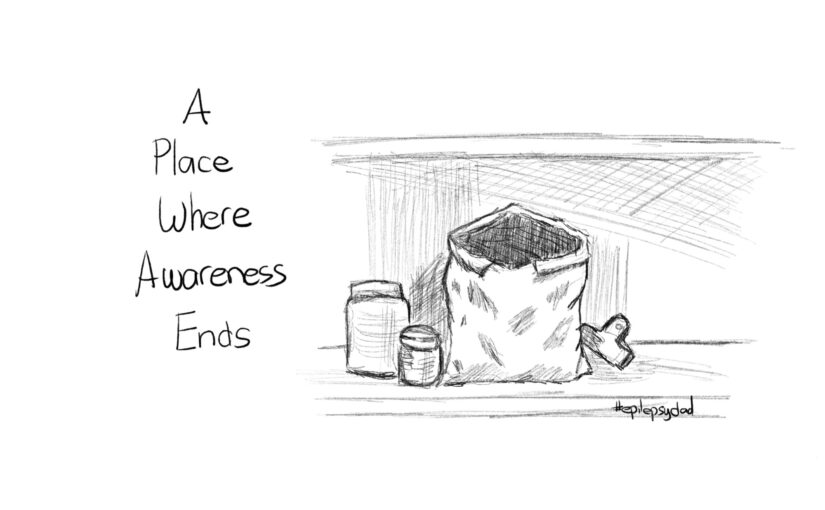My son wants to be a hockey player again.
Actually, he’s wanted to be a hockey player for most of his life.
Hockey has always been part of his identity. He had a hockey stick in his hands as soon as he could stand. He left the hospital with an NHL toque on his head. One of my earliest memories of him is lying on a couch in a hospital room a day or two after he was born, him asleep on my chest, a hockey game on the television.
Before the seizures.
Before we knew what was coming.
When he was little, we played hockey in the living room with miniature sticks and a foam ball. We took turns as players and goalies. We went to an outdoor rink near our house with sticks and a ball and played one on one.
One time, there were other people there—teenagers, I think. One of them was a goalie. He let my son take shots on him. Let a few go in. My son was three or four. This was still Colorado. Still before everything changed.
He started skating when he was two. He joined “Intro to Hockey” when he was about four. Right before we moved to Pennsylvania. Right before the seizures started.
Right before we knew what we were carrying forward.
Once his seizures were somewhat under control—though never eliminated—we tried again. We went back to skating. We worked on stick handling off the ice. But even that eventually became too much. Then COVID hit, and everything stopped.
When we moved to the suburbs and the world slowly opened back up, we tried skating lessons again. But they were exhausting for him. His ankle strength wasn’t there. His stamina wasn’t there.
Eventually, we stopped.
But hockey never really went away.
A few years ago, he brought up the idea of being in the NHL. We talked about how it wasn’t something he could safely pursue. With his health challenges and the fact that he still has seizures, the risks of hockey make it unsafe.
We tried to name other ways hockey could still be part of his life. Other ways to love the game and stay close to it.
We watch hockey. He loves his Avalanche. We went to an NHL Finals game—his Avalanche versus my Tampa Bay Lightning. The Avalanche won 7–0 and went on to win the Stanley Cup.
Two facts my son reminds me of constantly.
A few weeks ago, he told me he’s been practicing hockey every day. Because that’s one of the things we always talk about when people eventually make it to the NHL—how much work they put in before anyone noticed.
He asked me whether he should be a player or a goalie.
He’s been wearing his Avalanche jersey again. Drawing players. Talking about teams. He understands that he might not get to choose which team signs him.
Now I have to talk to him again.
That’s the hard part. Not the safety. Not the medical reality. The sense that something meaningful may be slipping out of reach.
I ask myself whether I’m wrong for not letting him live in the fantasy of it. Whether I should just let it sit there, untouched.
But he’s sixteen. And I don’t want him chasing something that can’t hold him safely. I want him chasing something that asks a lot of him. Something that’s still hard. Something that still matters. But something that’s possible.
Working toward an NHL career isn’t something he can do safely. But there may be other ways for hockey to remain part of his life. Other paths that keep the game close.
I don’t need those paths to replace his dream. I just need them to exist.
This isn’t a conversation I can rush. Or solve. Or make painless. It’s something I have to sit with him in, and return to as he grows and changes.
I know I’m not the one who set these limits. I know where they come from.
All I can do is stay with him as he bumps up against them, and not look away.


